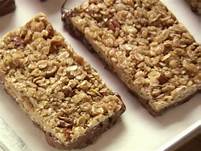Importance of well balance diet
All food contains all of the nutrients we need to be healthy, it is necessary to eat various foods in sufficient amounts. A good diet will include many different foods, and sufficient in quantity and quality to meet an individual’s need for food energy and other micro nutrients.
PARSNIPS
Typical serving size:
1 cup, cooked (156 g)HOW THEY HARM
Allergies
WHAT THEY HEAL
High cholesterol Weight gain Constipation Cancer Birth defects Introduced to North America in the 1600s, parsnips look sort of like long, pale carrots and are a low-calorie food that’s both nutritious and starchyThey have a sweet, nutty flavor that pairs well with other vegetables in soups or stews
Alternately, they can be served as a side dish or instead of potatoes
Because parsnips are too fibrous to be eaten raw, they are served cooked
A 1-cup (156-g) serving has only 111 calories and as much fiber as 3 slices of whole wheat bread; it also provides 573 mg of potassium, 20 mg of vitamin C, and 90 mcg (micrograms) of folate
Health Benefits
Lowers cholesterolParsnips are an excellent source of both soluble and insoluble dietary fiber
A 1-cup (156-g) serving provides about 6 g of fiber, about one-quarter of the total amount that is recommended per day
Adequate fiber in the diet helps reduce cholesterol levels, obesity, and constipation conditions
QUICK TIP:
Keep the skin The most nutritious part of a parsnip is just below the surface of the skin so for maximum nutrient value, don’t peel them before cookingFights cancer and birth defects
While they look a bit like carrots, they actually contain much more heart-friendly potassium and folate than the popular orange root vegetable
Folate is a B vitamin your body needs to create healthy cells; having insufficient levels has been linked to some forms of cancer and birth defects
And while parsnips may have only half the protein and vitamin C of potatoes, they provide more fiber, making them a healthy substitute in a number of dishes
Health Risks
Allergic reactionsPeople with a known history of
Allergies
to birch pollen as well as to foods like walnuts, figs, carrots, and parsley may develop a sensitivity to parsnipsSymptoms are usually limited to slight swelling and itching of the lips and mouth, but sensitive people might be better off avoiding parsnips




